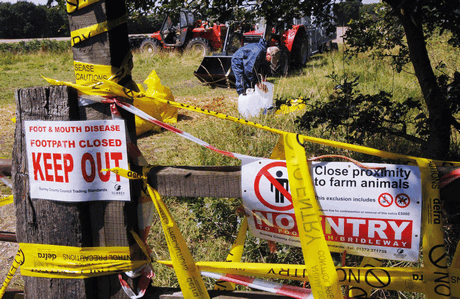DEFRA mismanaged budget, say MPs

Financial mismanagement by senior civil servants left DEFRA unable to cope with last year’s floods, avian flu and foot-and-mouth outbreaks, reveals a damning report by an influential group of MPs.
The department planned to exceed funding limits set by the Treasury for two successive years, resulting in swingeing cuts that left it vulnerable to unforeseen circumstances, according to the House of Commons Public Accounts Committee.
“As the risk of overspending became clear, the department had to make in-year budget cuts to its planned activities,” said committee chairman Edward Leigh MP. “This is a clear example of poor financial management harming the delivery of services.”

Although the department had now implemented a more rigorous financial management system, Mr Leigh said the lessons of what had gone wrong should be closely studied by all involved.
“A taut financial management culture has to be instilled throughout the organisation, from the management board downwards. Central to that culture is recognition of the need to constantly scrutinise and challenge the financial management of resources and hold budget holders to account.”
The report reveals that the department received £3.617bn from the Treasury in 2007-08. But the department failed to allocate final budgets until five months into the financial year – partly because planned expenditure exceeded funds provided.
A similar situation had arisen the previous year when DEFRA was forced to make mid-year budget reductions of £170m to avoid the risk of overspending and breaching Treasury limits.
Problems in managing expenditure over the past two years resulted, in part, from the difficulties faced by DEFRA in sponsoring 31 government agencies and delivery bodies – including the Rural Payments Agency (RPA).
Giving evidence to the committee, DEFRA permanent secretary Helen Ghosh admitted to MPs that the RPA had employed as many as 5000 civil servants to deliver support payments to 100,000 farmers.
The report said the problems were exacerbated by a lack of awareness among the department’s board members of good financial management practice, and cultural issues that resulted in failure to prioritise financial management at a corporate level.
The department’s management board has since adopted more rigorous financial monitoring systems. The 2008-09 budget has been agreed within Treasury guidelines and the problems of 2006-07 and 2007-08 are not expected to recur.
